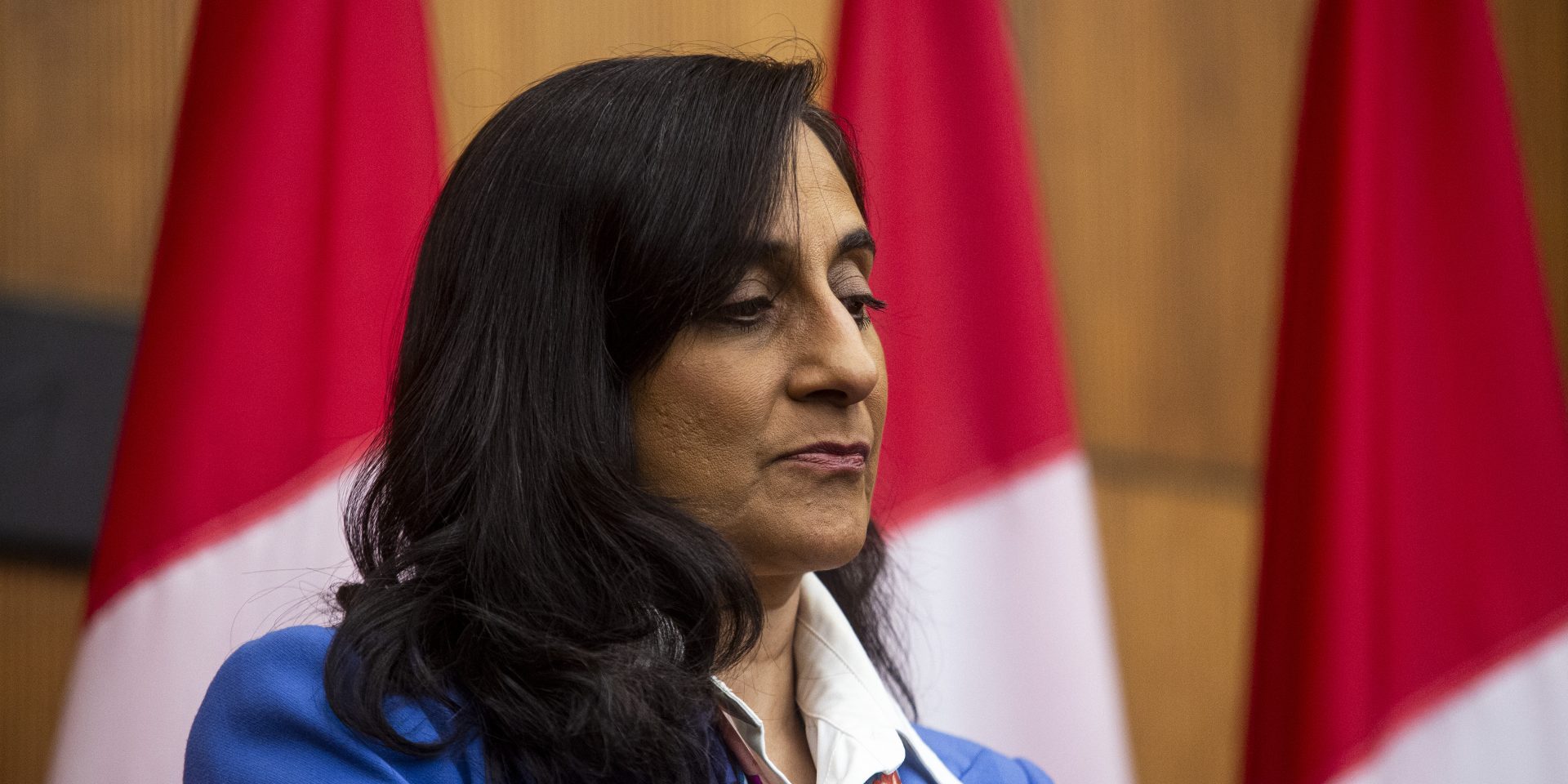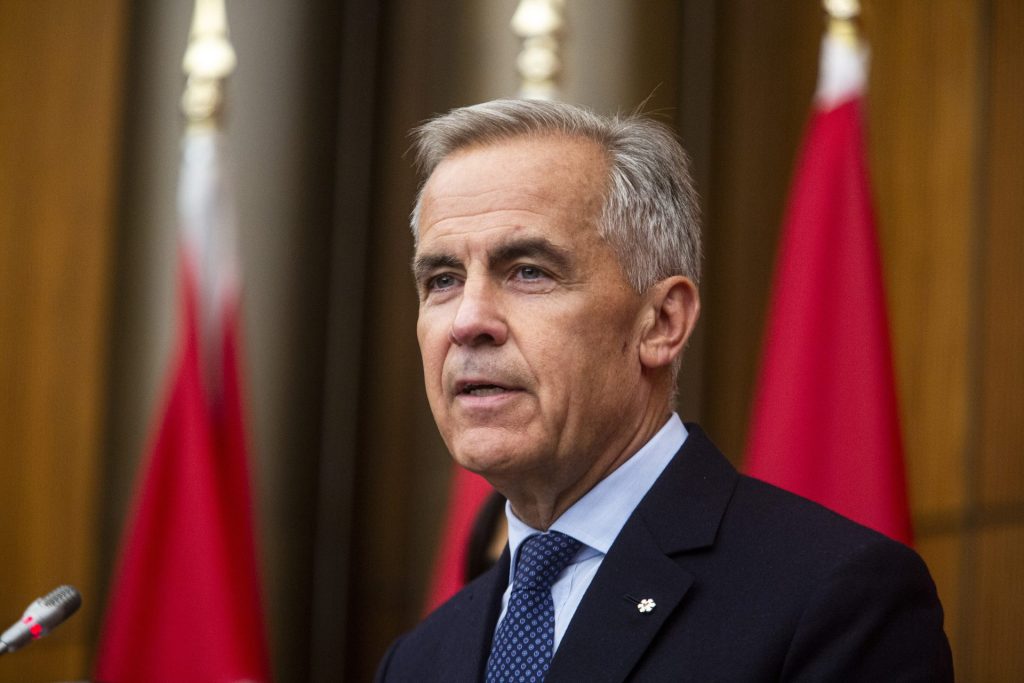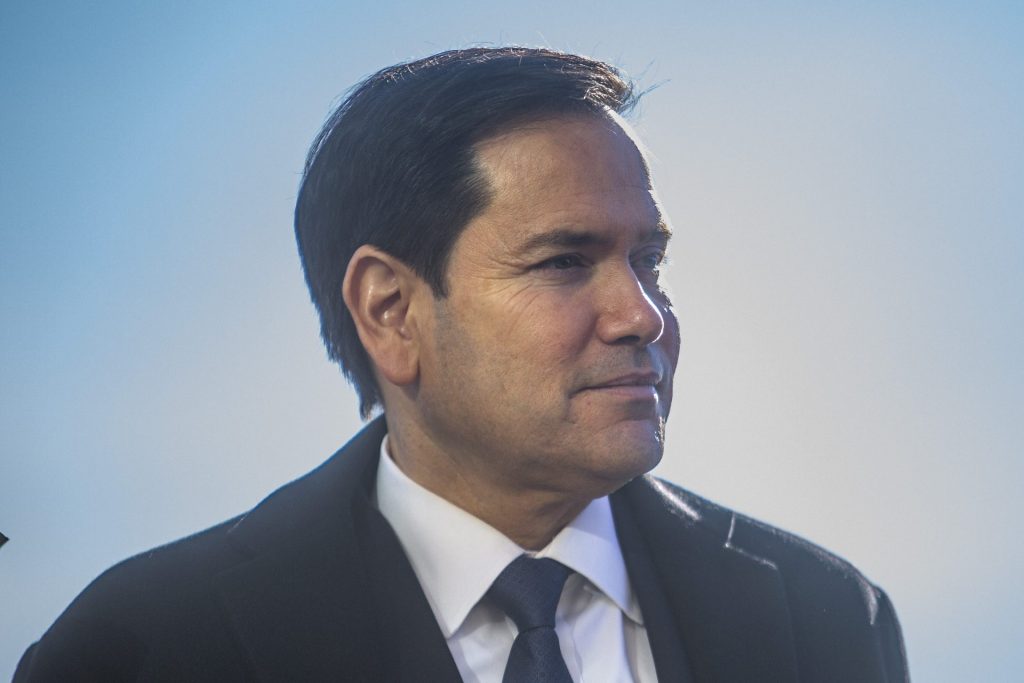Canada is ‘evaluating’ ties with Israel, observers say that shouldn’t be done alone

With the foreign affairs minister revealing that Ottawa is “evaluating” its relationship with Israel, any change in posture should be linked with Canada’s allies, says a former ambassador to Israel.
Prime Minister Mark Carney (Nepean, Ont.) and Foreign Affairs Minister Anita Anand (Oakville East, Ont.) both condemned Israel’s strike on Hamas’ headquarters in Qatar on Sept. 9, calling for Qatar’s sovereignty to be “respected.”
Anand told reporters on Sept. 10 that Canada is in the process of “evaluating” its relationship with Israel.
“We are evaluating the relationship with Israel,” she said. “There are many moving pieces in the Middle East right now. And at the rock bottom, Canada’s position is that we need to work for peace in the Middle East, and we need to address the humanitarian situation in Gaza.”
She didn’t directly answer what that would entail, but noted that Canada “will evaluate our next steps.”
Past Canadian ambassador to Israel Jon Allen said such an evaluation could bring a range of options, from trade to diplomacy.
He said that if Canada’s approach to Israel follows a larger bloc with a similar approach—which could include the United Kingdom, the European Union, Norway, Australia, and New Zealand—it would be more impactful.
“I would encourage them to do that,” said Allen, who was Canada’s top diplomat in Israel from 2006 to 2010.
While a unilateral approach would make a statement, its effect would be minimized as the country isn’t one of Israel’s larger trading partners, he said.
Canada followed the U.K. and France in indicating that it would be recognizing the Palestinian state at the UN General Assembly meeting later this month if certain conditions are met, including the demilitarization of the state and a pledge to hold elections.
On Sept. 15, Carney participated in a virtual meeting on the Middle East that was chaired by French President Emmanuel Macron, alongside Egypt, Jordan, Qatar, and the U.K.
The next day, on Sept. 16, Israel launched a ground offensive into Gaza City.

Allen said that given the ongoing conflict, the unrelenting humanitarian situation, and the plan to enlarge settlements in the West Bank to splinter the territory, western nations need to be taking action.
He said that a combination of public opinion against Israel’s actions and the events on the ground should force Canada to act.
Canada can show its increasing displeasure with the Israeli government by calling the Israeli ambassador into the foreign ministry for a démarche, recalling Canada’s ambassador from Israel, or expelling Israel’s envoy in Canada, said Allen.
Allen said that even if the ambassador were to be recalled, there is still a cadre of diplomats in Israel who will continue working in Canada’s interests.
“The first step is to call in the Israeli ambassador and make your views extremely well known, and you publicize it. The next step is you recall your ambassador because it’s a symbolic way of saying, ‘We’re extremely unhappy.’ The third step is to send their ambassador home, as we did with India,” he said, remarking that he isn’t recommending a particular course of action, but that the three options are what’s on the table for Canada in terms of diplomatic action.
“I, frankly, think what they should be doing is jointly suspending the free trade agreement,” Allen said. “That would send a signal.”
In 2024, two-way merchandise trade amounted to $1.8-billion. The two countries have a free trade pact that was modernized in 2019, and received little opposition in the House at the time.
The EU has indicated that it will look at partially pausing its free trade pact with Israel.
Allen said the pressure might not change the actions of Israeli Prime Minister Benjamin Netanyahu, but that it will boost the position of the opposition in trying to sway Israelis during the next election.
“It will increase the power of the opposition to say to Israelis come the next election: ‘Is this the country that you want? A country that is isolated from the rest of the world. That is a pariah state not just amongst people that abhor war crimes, but amongst your fellow nations.’”
Expelling, recalling ambassadors unlikely: expert
Allen said the attack on Qatar is another “clear” example of Israel’s breach of international law.
“It’s also a clear signal that they’re not interested in a ceasefire, in negotiations, or in a hostage deal,” he said.
University of Ottawa professor Thomas Juneau, an expert on the Middle East, said that Israel’s attack in Qatar has “confirmed” to many countries—including Canada, Europeans, and those in the region—that Israel is “increasingly aggressive” and is “increasingly problematic.”
But he said Anand’s announcement that Canada is “evaluating” its relationship with Israel is “very vague,” with no indication of what it could imply.
“It could be nothing. It could just mean that she was saying that for political reasons to be perceived as doing something, and there may or may not be an intention to follow up.”
Juneau said if there is an intention to follow up that could involve curtailing trade, increasing sanctions on extremist settlers and possibly Israeli cabinet ministers, or a symbolic diplomatic intervention.
He said that could involve bringing Israeli Ambassador to Canada Iddo Moed to the Pearson Building for a dressing down.
Juneau said he doesn’t expect Canada to take tougher diplomatic measures than that, such as recalling its ambassador or expelling Moed.
“These are options that are in theory are on the table, but my guess … is that Canada’s not there yet,” he said, remarking that, in the diplomatic world, such a move would be “a message that carries a lot of weight.”
“It’s not something that countries do easily,” he said. “It is something that countries do pretty rarely.”
“As much as the Carney government since it’s been in power … has been somewhat more critical than the Trudeau government, I don’t see an indication that we are at the point of expelling and recalling ambassadors,” said Juneau.

Juneau echoed Allen on the impact of Canada working with allies to effect the situation, remarking that Canada acting unilaterally would have no influence in changing Israel’s actions.
“If Canada wants to have an impact on penalizing Israel, or in a parallel debate in pushing an eventual peace process—which is part of the logic in recognizing Palestinian statehood—the only way that Canada could have an impact is if it works in close co-ordination with as many allies as possible,” he said.
Five to 20 countries would need to act act similarly for sanctions, for example, to gain some traction, Juneau said.
He suggested that what will dominate Canada’s thinking on addressing Israel’s actions will be how it is received by United States President Donald Trump.
“From Canada’s perspective, when we make foreign policy decisions, the U.S. variable is almost always the most important,” he said. “That was the case before Trump, and it’s still the case today—it’s just that it is more difficult.”
Juneau said the dilemma for this country is that it has announced its intention to recognize the state of Palestine and has talked about re-evaluating its relationship with Israel, but questions remain over whether the U.S. will respond negatively to either and threaten Canada’s trading interests.
“That puts Canada in an extremely difficult position,” he said, remarking that at this point, it is unclear what the U.S. reaction will be.
Whether recognizing a Palestinian state will disrupt the work of Canada’s presidency of the Group of Seven is an open question. U.S. Secretary of State Marco Rubio is set to come north of the border for a second time this year later this fall as Canada will host a second foreign ministers’ meeting.
That meeting will occur just weeks after nearly half of the G7 is set to announce recognition of Palestine at the UN.
nmoss@hilltimes.com
The Hill Times






 LICENSING
LICENSING PODCAST
PODCAST ALERTS
ALERTS













